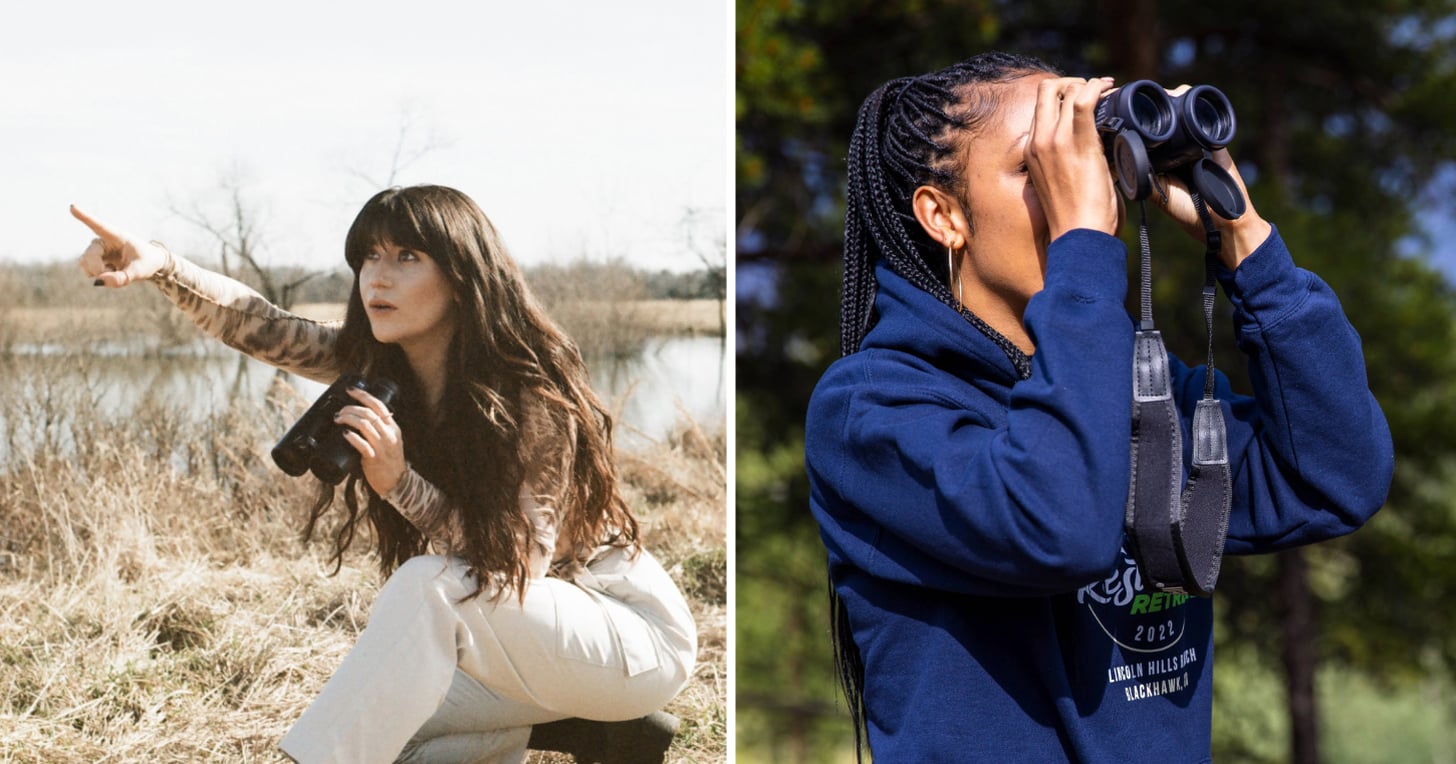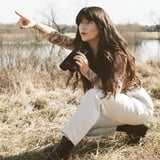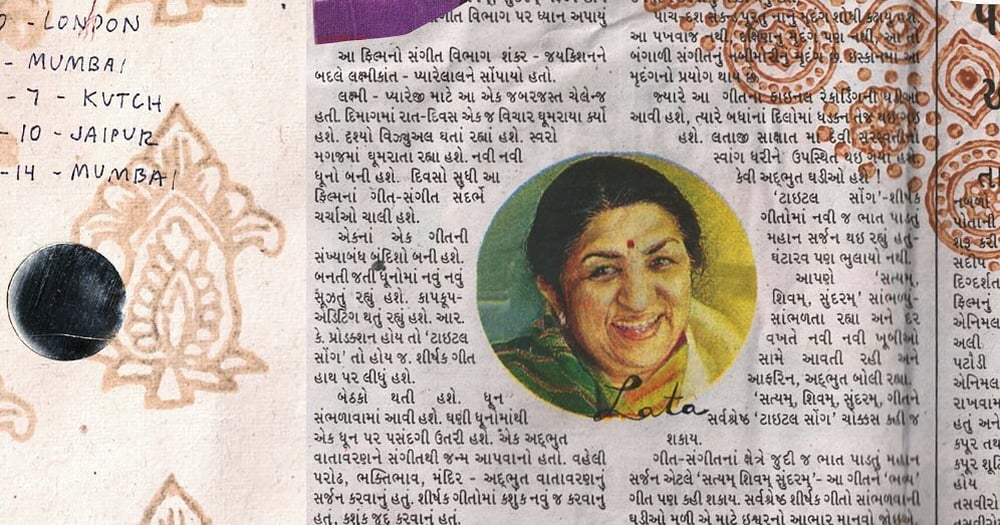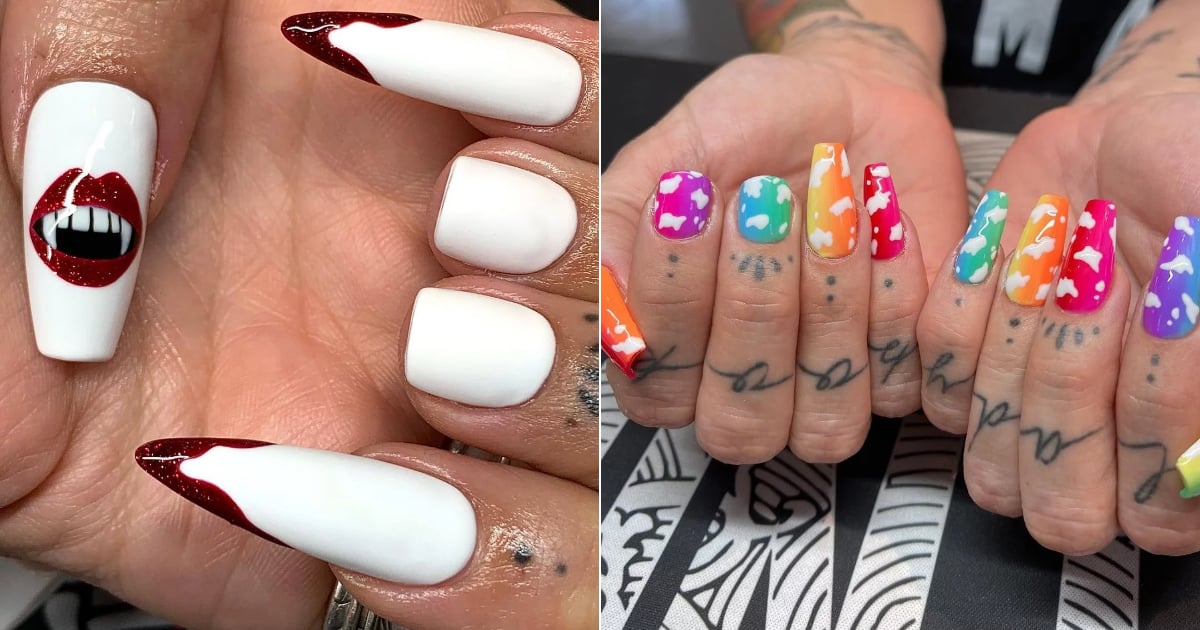For Captain Ahab, it was a white whale. For Quint from “Jaws,” it was a great white shark. For Bonner Black, it was a roseate spoonbill, a wading bird with bright pink plumage and a long beak that resembles a piece of flatware. The Nashville-based musician was driving on the backroads of Costa Rica a couple months ago, eyes fixed on the surrounding greenery, when her friend in the driver’s seat exclaimed “FLAMINGO!” Before she knew it, Black had jumped out of the moving car, catching only a passing glimpse of the roseate spoonbill – not even long enough to raise her phone for a picture – before it flew off.
“I love that that was how I saw it because I just got it for a second, one perfect second,” she tells Popsugar. “That’s how moments are, that’s how time works. Soak in life as it comes, and then let it go.”
Black only resembles those famous literary hunters insofar as her obsession has driven her to some light madness, at least enough to jump out of a moving vehicle. But unlike Ahab and Quint, she’s not out for blood. In fact, quite the opposite. She’s part of a growing movement of amateur birdwatchers, and she’s one of this new generation’s brightest stars. Her birding videos, which amassed 15 million views across platforms in 2024, have helped turn a wholesome (if otherwise overlooked) pastime into the hot-girl hobby of the year.
Experts Featured in This Article
Corina Newsome is a wildlife biologist and a conservation scientist at the National Wildlife Federation.
Now, it could be because I’m a nerd, but lately my feed has been flooded with birding content. I’m scrolling through informational rants about bird dialects, freak-outs about barred owls, hungover visits to shorebird festivals, and best friends interrupting their sexcapade recaps with excited birdspotting – all of which have brought me flickers of joy in an otherwise scary and depressing digital landscape. I’ve also noticed something about the videos I’m being served: none feature David Attenborough lookalikes (god love him). They’re made by creators who are at least 60-70 years younger, usually pretty funny, and sometimes very gorgeous.
“I feel like I got my sparkle back from birding.”
Birding – the act of watching, listening to, and sometimes tracking birds in the wild – has long been considered a hobby for the well-to-do, and a form of leisure that has a slight “geriatric tinge,” as Black cheekily puts it. But the face of birding is changing, thanks to the internet and social media and even the pandemic, a period that saw a surge of enthusiasm for birding among people who might never have otherwise had the time or motivation to deepen their intimacy with the natural world. And the momentum hasn’t slowed since.
Black first started birdwatching as a joke, the way someone might take up underwater basketweaving or fencing. She’d recently started making music and content full time, juggling brand deals on social media while also nursing a broken heart after a bad breakup. She was feeling burnt out and passionless and wondered if she could jolt herself back to stasis by trying out the most random hobby she could think of. So she bought a $40 pair of binoculars and a Tennessee bird book, “and within a month I was just addicted to the chase,” she says. “I feel like I got my sparkle back from birding.”
Now her online persona is a mix of touring musician, avid birdwatcher, and birding memelord, often combining all three by incorporating birding outings into her music touring schedule. She’s just as likely to be found in the wild, taking fans on exclusive bird-related treks before or after her shows, as she is on TikTok and Instagram, asking people questions like which birds they wouldn’t let their sister date.
It’s online where birding has really taken off. There are thousands of birder Facebook and Reddit groups full of threads where people discuss a shared love of birds and fight each other over specific bird identifications. Birder romance has even cropped up as the latest niche category of romantic fiction, and “Birding With Benefits,” a novel, was recently picked up by Hallmark. (According to Black, it features some great X-rated scenes.)
“Watching birds connects you to the rest of the world, wherever you are.”
Some birding affinity groups have been around for years. Black Birders Week, for example, was started in 2020, after an infamous confrontation in Central Park led to a white woman falsely accusing prominent Black birder Christian Cooper of threatening her life. Atlanta-based conservation scientist Corina Newsome was instrumental in the formation of that first summit and still attends each year when she can.
Newsome knows the feeling of being underestimated and misjudged in a birding context because of her gender, skin color, and age. In the early days of her career, she was often the youngest and only non-white person in her cohort. “People would question my knowledge a lot,” she recalls.
Lots of more inclusive birding groups have emerged since the Christian Cooper incident, she tells Popsugar, “to provide a space where you are not the only one of your identity and where you can feel comfortable to ask questions that may be perceived as being novice.” Because, she adds, “if birds knew how elitist people were being about looking at them, these people would be embarrassed.”
When I caught up with her, Newsome had just finished a stint as a guest educator at a summer camp in Colorado where she used birding to teach Black kids ages 14 to 17 “the importance of identifying living things in their surroundings.” It was her fourth summer at the camp, and every year she says the teens are “obsessed.” This year’s kids were especially intrigued by her lesson on hummingbirds and how they can migrate all the way from Mexico or even further. “Watching birds connects you to the rest of the world, wherever you are,” she says.
As a biologist, Newsome sees the widespread popularity of birding as not only a conservation win but a social justice imperative. Birders, regardless of their “skill” or dedication levels, are citizen scientists. Every time they log a bird that they spot – whether they’re using the Merlin bird identification app or Ebird, two birdwatching databases run by Cornell University – they’re collecting data that trained scientists like Newsome can then use to write grants or direct additional resources to wherever those birds are found, whether it’s a Nebraskan plain or a city block in Atlanta.
“Professionals like me use this data to figure out where to go, so if our communities don’t have data, we skip over them,” she explains.
Of course, not all birders are diligent note-takers who set out to discover a brand new species or somehow reverse climate change with a pair of binoculars and a dream. And in fact, Newsome says, a big part of why birding is so popular now is because of its simplicity. “If you like looking and listening for birds, then you’re a birder,” she says. It doesn’t have to be more complicated than that. “Personally, I am constantly in a state of birding. I bird every time I can see or hear outside.”
“It’s like a treasure hunt, there’s a dopamine hit.”
Still, she believes birding might actually change the world, especially as we live through what she calls “an environmental emergency.” “The increase in popularity of birding gives me a lot of hope, because people record what they see, and a lot of these new birders live in cities,” she says. Cities are home to a surprising array of wildlife, and will play an important role as climate change worsens. The more we optimize cities for biodiversity, she says, the more we invest in tree cover and shade and even things like coastline restoration and flood management – all important infrastructure for city-dwelling humans, too. “The more we record where these [birds] are, the more these things get illuminated.”
So yes, birding is a powerful tool for climate resiliency and racial justice. But it’s also just . . . really fun. For Newsome, “it’s like a treasure hunt, there’s a dopamine hit,” especially during migration season, when you’re bound to spot some unexpected critters.
Black feels the same way. She’s what they call in the birding world a “lister,” a playfully derogatory term for someone who obsessively keeps a list of every bird they’ve ever seen. “Last year I saw 304 species. This year I’m going for 350,” she tells me.
It’s that energy – that all-in feeling – that immediately had her hooked when she first started birding all those years ago. “If anything, being in the birding community has reminded me how much we’re all kindergarteners at heart,” she says. “We all just want to be accepted, we just want to be excited about something. We all have wonder.”
Emma Glassman-Hughes (she/her) is the associate editor at PS Balance. In her seven years as a reporter, her beats have spanned the lifestyle spectrum; she’s covered arts and culture for The Boston Globe, sex and relationships for Cosmopolitan, and food, climate, and farming for Ambrook Research.




